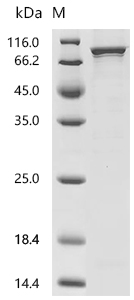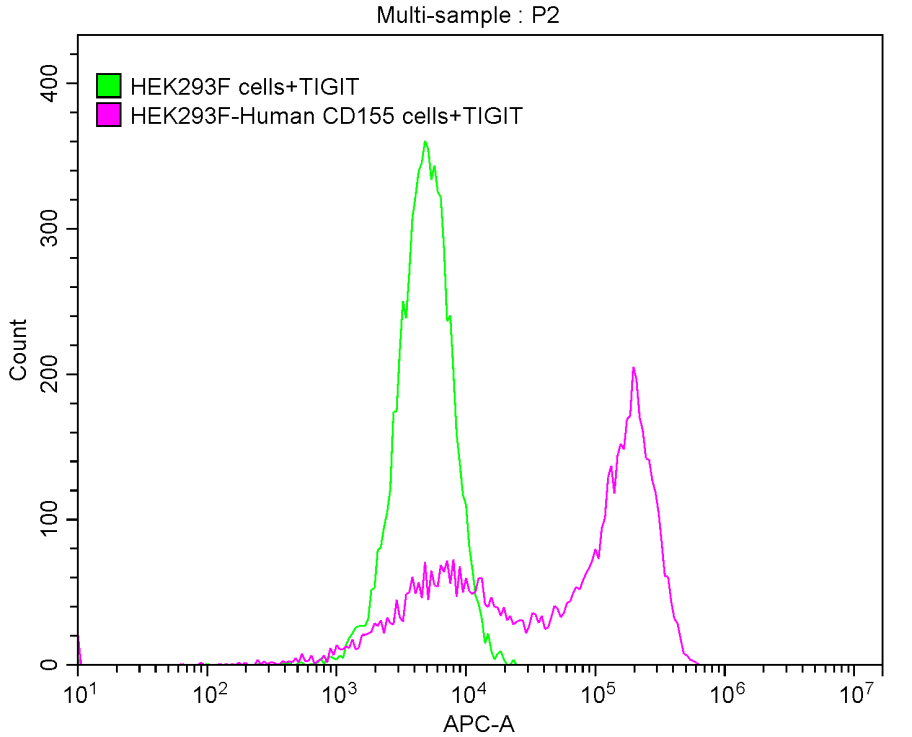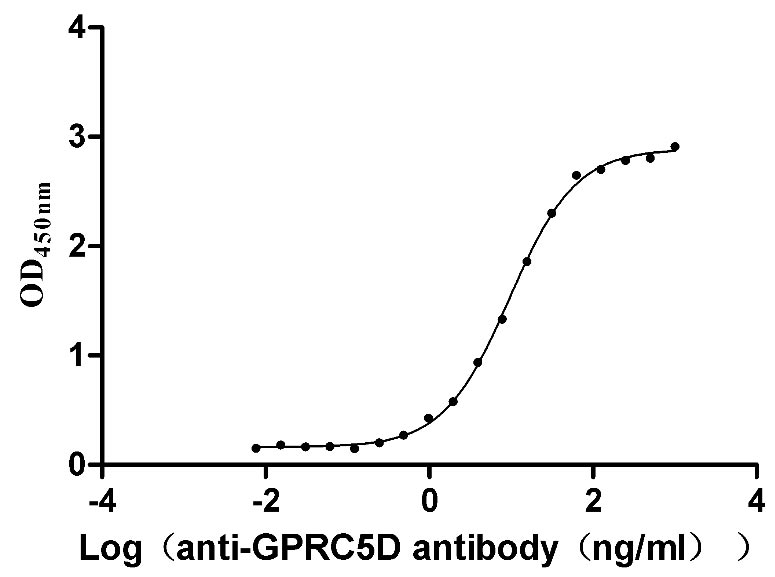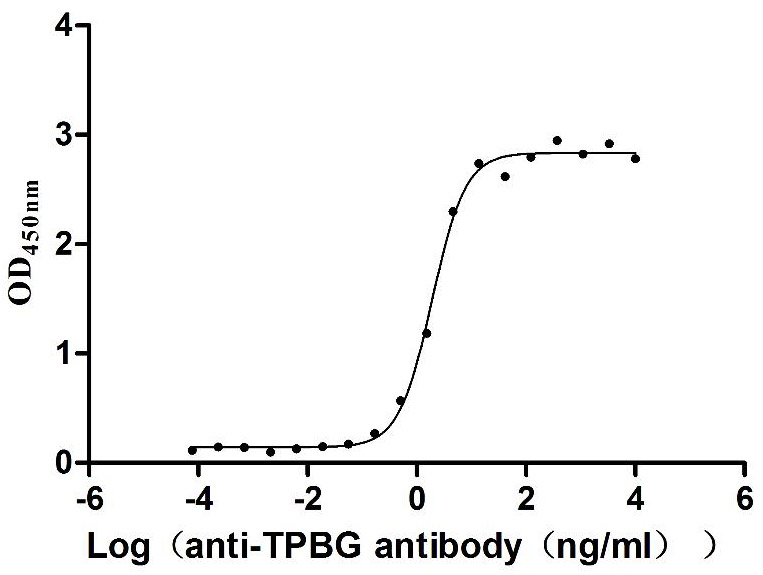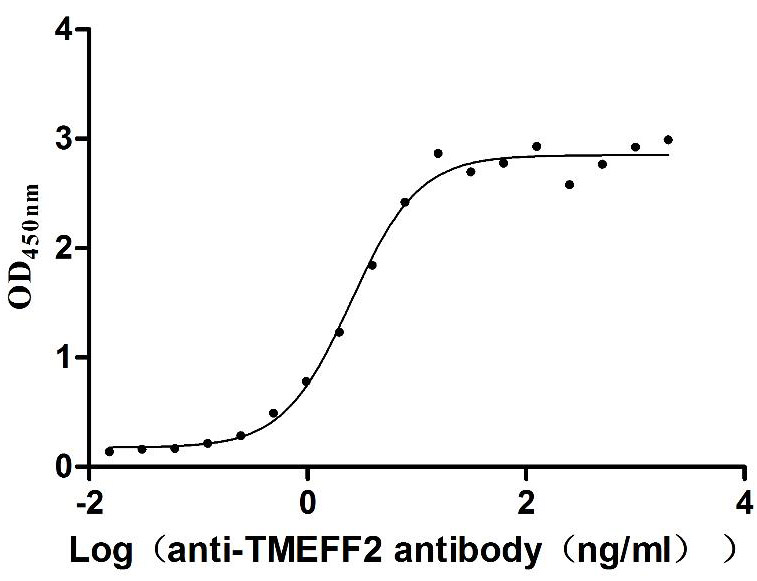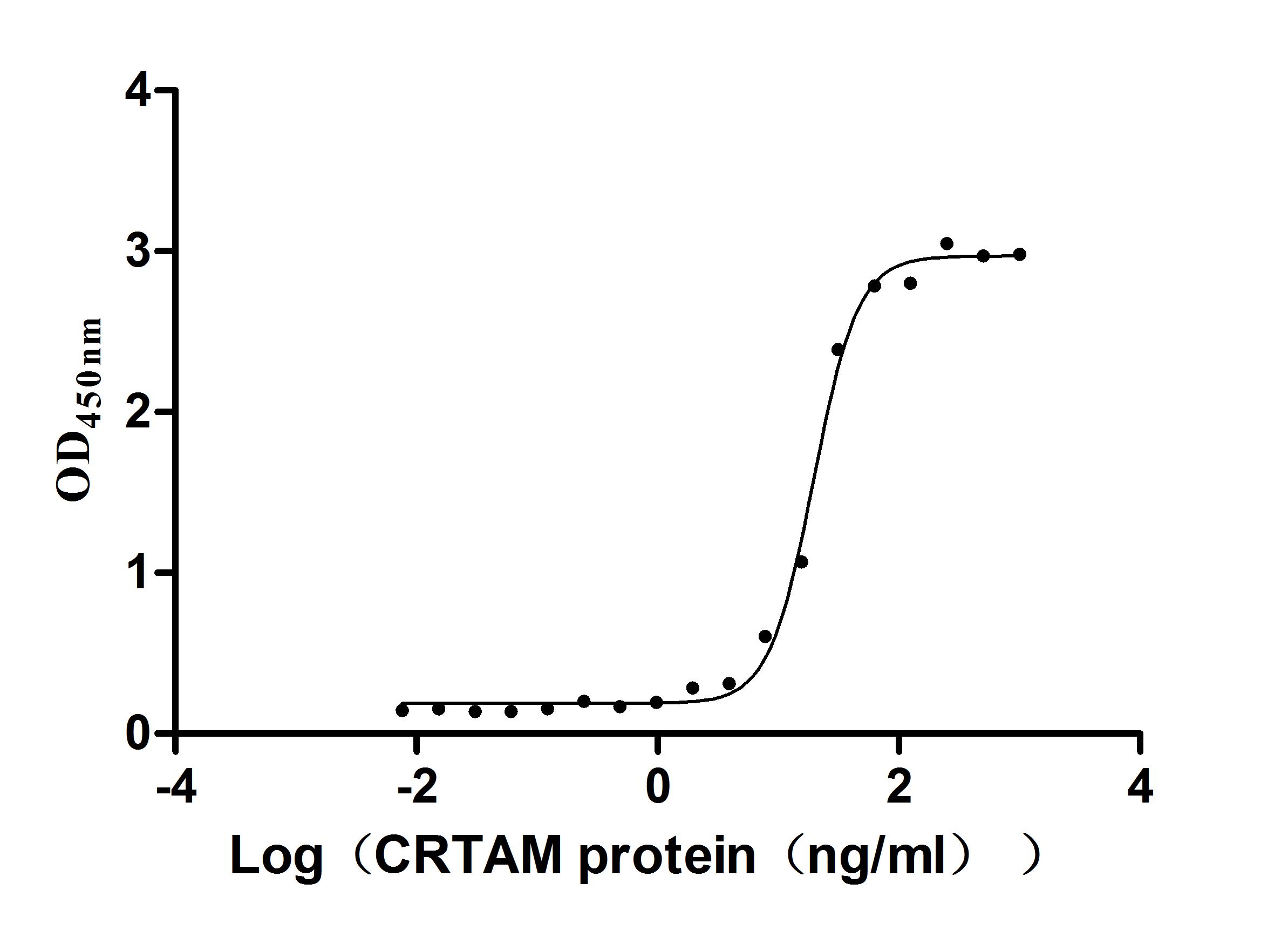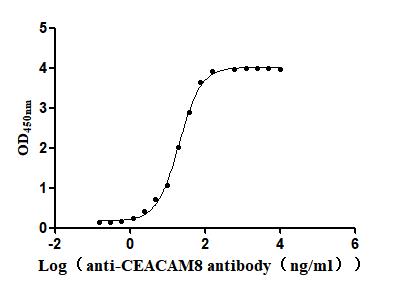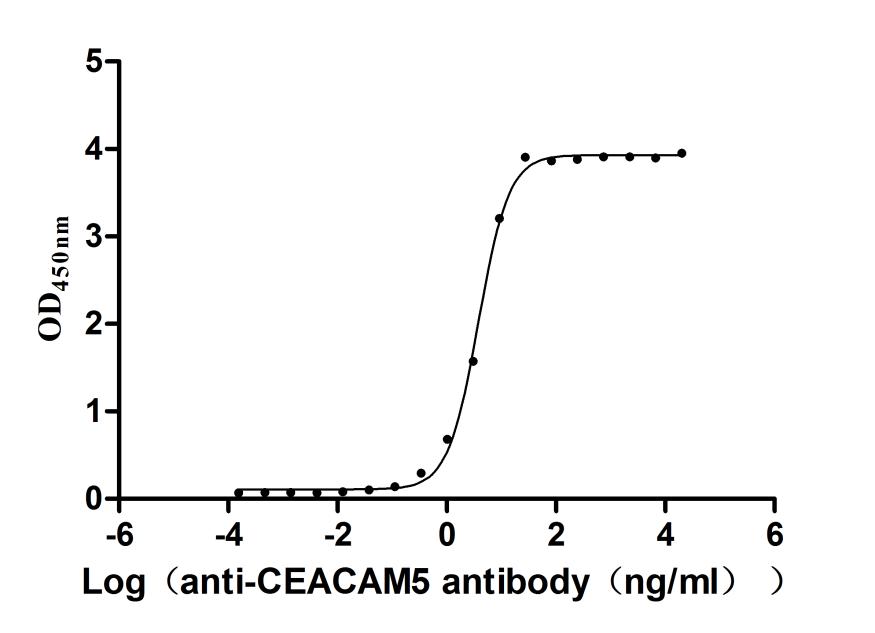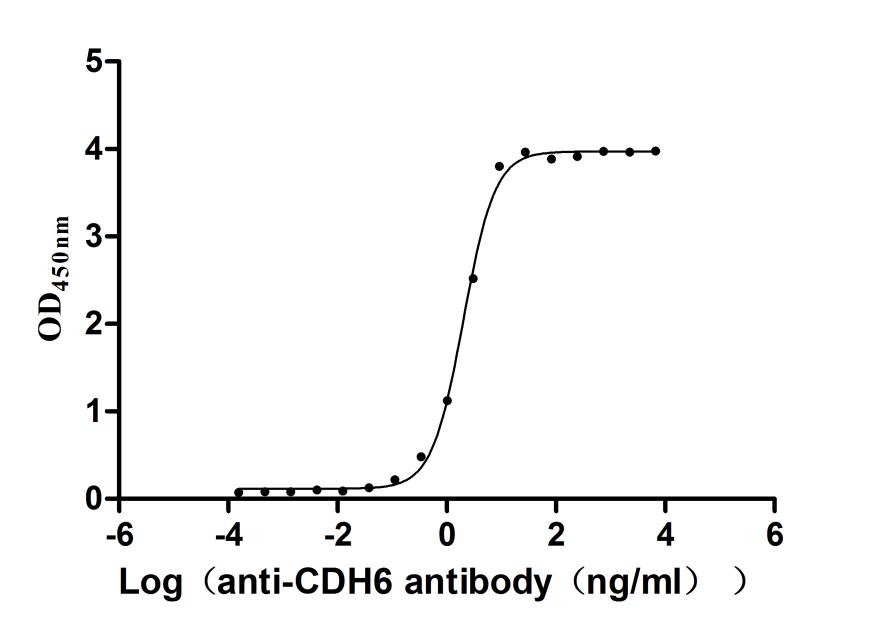Recombinant Human Phosphoenolpyruvate carboxykinase [GTP], mitochondrial (PCK2)
-
中文名稱:Recombinant Human Phosphoenolpyruvate carboxykinase [GTP], mitochondrial (PCK2)
-
品名簡稱:Recombinant Human PCK2 protein
-
貨號:CSB-EP619092HU
-
說明書:
-
規(guī)格:¥1536
-
圖片:
-
其他:
產(chǎn)品詳情
-
純度:Greater than 85% as determined by SDS-PAGE.
-
生物活性:Not Test
-
基因名:
-
Uniprot No.:
-
別名:Phosphoenolpyruvate carboxykinase 2, mitochondrial
-
種屬:Homo sapiens (Human)
-
蛋白長度:Full Length of Mature Protein
-
來源:E.coli
-
分子量:74.0 kDa
-
表達區(qū)域:33-640aa
-
氨基酸序列LSGDLGQLPTGIRDFVEHSARLCQPEGIHICDGTEAENTATLTLLEQQGLIRKLPKYNNCWLARTDPKDVARVESKTVIVTPSQRDTVPLPPGGARGQLGNWMSPADFQRAVDERFPGCMQGRTMYVLPFSMGPVGSPLSRIGVQLTDSAYVVASMRIMTRLGTPVLQALGDGDFVKCLHSVGQPLTGQGEPVSQWPCNPEKTLIGHVPDQREIISFGSGYGGNSLLGKKCFALRIASRLARDEGWLAEHMLILGITSPAGKKRYVAAAFPSACGKTNLAMMRPALPGWKVECVGDDIAWMRFDSEGRLRAINPENGFFGVAPGTSATTNPNAMATIQSNTIFTNVAETSDGGVYWEGIDQPLPPGVTVTSWLGKPWKPGDKEPCAHPNSRFCAPARQCPIMDPAWEAPEGVPIDAIIFGGRRPKGVPLVYEAFNWRHGVFVGSAMRSESTAAAEHKGKIIMHDPFAMRPFFGYNFGHYLEHWLSMEGRKGAQLPRIFHVNWFRRDEAGHFLWPGFGENARVLDWICRRLEGEDSARETPIGLVPKEGALDLSGLRAIDTTQLFSLPKDFWEQEVRDIRSYLTEQVNQDLPKEVLAELEALERRVHKM
Note: The complete sequence may include tag sequence, target protein sequence, linker sequence and extra sequence that is translated with the protein sequence for the purpose(s) of secretion, stability, solubility, etc.
If the exact amino acid sequence of this recombinant protein is critical to your application, please explicitly request the full and complete sequence of this protein before ordering. -
蛋白標簽:C-terminal 6xHis-tagged
-
產(chǎn)品提供形式:Liquid or Lyophilized powder
Note: We will preferentially ship the format that we have in stock, however, if you have any special requirement for the format, please remark your requirement when placing the order, we will prepare according to your demand. -
緩沖液:If the delivery form is liquid, the default storage buffer is Tris/PBS-based buffer, 5%-50% glycerol. If the delivery form is lyophilized powder, the buffer before lyophilization is Tris/PBS-based buffer, 6% Trehalose, pH 8.0.
-
復(fù)溶:We recommend that this vial be briefly centrifuged prior to opening to bring the contents to the bottom. Please reconstitute protein in deionized sterile water to a concentration of 0.1-1.0 mg/mL.We recommend to add 5-50% of glycerol (final concentration) and aliquot for long-term storage at -20℃/-80℃. Our default final concentration of glycerol is 50%. Customers could use it as reference.
-
儲存條件:Store at -20°C/-80°C upon receipt, aliquoting is necessary for mutiple use. Avoid repeated freeze-thaw cycles.
-
保質(zhì)期:The shelf life is related to many factors, storage state, buffer ingredients, storage temperature and the stability of the protein itself.
Generally, the shelf life of liquid form is 6 months at -20°C/-80°C. The shelf life of lyophilized form is 12 months at -20°C/-80°C. -
貨期:Basically, we can dispatch the products out in 3-7 working days after receiving your orders. Delivery time may differ from different purchasing way or location, please kindly consult your local distributors for specific delivery time.
-
注意事項:Repeated freezing and thawing is not recommended. Store working aliquots at 4℃ for up to one week.
-
Datasheet & COA:Please contact us to get it.
相關(guān)產(chǎn)品
靶點詳情
-
功能:Catalyzes the conversion of oxaloacetate (OAA) to phosphoenolpyruvate (PEP), the rate-limiting step in the metabolic pathway that produces glucose from lactate and other precursors derived from the citric acid cycle.
-
基因功能參考文獻:
- Our study indicates that the T allele of the rs4982856 single-nucleotide polymorphisms in the PCK2 gene may be a risk factor for glucose intolerance after kidney transplantation PMID: 29731064
- Downregulation of PCK2 remodels tricarboxylic acid cycle in tumor-repopulating cells of melanoma PMID: 28166201
- ApoA-IV colocalizes with NR4A1, which suppresses G6Pase and PEPCK gene expression at the transcriptional level, reducing hepatic glucose output and lowering blood glucose. PMID: 26556724
- Results indicate that PEPCK promotes tumor growth by increasing glucose and glutamine metabolism, increases anabolic metabolism and promotes mTORC1 activity. PMID: 26481663
- Mitochondrial PCK2 regulates metabolic adaptation and enables glucose-independent tumor growth in various neoplasms. PMID: 26474064
- When autophagy was blocked, the level of glucose-6-phosphatase (G6Pase) and phosphoenolpyruvate carboxykinase (PEPCK) was reduced in HepG2 cells and not in Hep3B cells. PMID: 26036577
- PEPCK activity was elevated threefold in lung cancer samples over normal lungs and its activation mediates an adaptive response to glucose depletion in lung cancer. PMID: 24632615
- Amino acid limitation and ER stress inducers, conditions that activate the amino acid response (AAR) and the unfolded protein response (UPR), stimulate PCK2 gene transcription in tumor cell lines. PMID: 24973213
- Expression of phosphoenolpyruvate carboxykinase linked to chemoradiation susceptibility of human colon cancer cells. PMID: 24602180
- expression of HCV nonstructural component NS5A in Huh7 or primary hepatocytes stimulated PEPCK gene expression and glucose output in HepG2 cells. PMID: 22955269
- results reveal a novel link between glucose metabolism and the DNA damage signaling pathway and suggest a possible role for PEPCK and G6P in the DNA damage response PMID: 21733854
- Endoplasmic reticulum stress triggers suppression of AMPK while increasing C/EBPbeta and pCREB expression which activates PEPCK gene transcription. PMID: 20797423
- Results suggest that pepck2 gene expression is regulated by its 5' flanking region up to 822 bp, and 317 bp upstream of transcriptional start point. PMID: 15315819
- Wild-type AREBP, but not Ser(470) to Ala(470) substituted non-phosphorylating mutant, represses gene expression of the phosphoenolpyruvate carboxykinase (PEPCK), a key enzyme of gluconeogenesis. PMID: 17097062
- skeletal muscle PEPCK has a role in determining physical activity levels PMID: 19521512
- Increased transcriptional expression of PEPCK1 and G6Pc does not account for increased gluconeogenesis and fasting hyperglycemia in patients with type 2 diabetes mellitus. PMID: 19587243
顯示更多
收起更多
-
相關(guān)疾病:Mitochondrial phosphoenolpyruvate carboxykinase deficiency (M-PEPCKD)
-
亞細胞定位:Mitochondrion.
-
蛋白家族:Phosphoenolpyruvate carboxykinase [GTP] family
-
數(shù)據(jù)庫鏈接:
Most popular with customers
-
Recombinant Human T-cell immunoreceptor with Ig and ITIM domains (TIGIT), partial (Active)
Express system: Mammalian cell
Species: Homo sapiens (Human)
-
Recombinant Human G-protein coupled receptor family C group 5 member D (GPRC5D)-VLPs (Active)
Express system: Mammalian cell
Species: Homo sapiens (Human)
-
Recombinant Macaca fascicularis Trophoblast glycoprotein (TPBG), partial (Active)
Express system: Mammalian cell
Species: Macaca fascicularis (Crab-eating macaque) (Cynomolgus monkey)
-
Recombinant Human Tomoregulin-2 (TMEFF2), partial (Active)
Express system: Mammalian cell
Species: Homo sapiens (Human)
-
Recombinant Human Cell adhesion molecule 1 (CADM1), partial (Active)
Express system: Mammalian cell
Species: Homo sapiens (Human)
-
Recombinant Human Carcinoembryonic antigen-related cell adhesion molecule 8(CEACAM8) (Active)
Express system: Mammalian cell
Species: Homo sapiens (Human)
-
Express system: Mammalian cell
Species: Macaca mulatta (Rhesus macaque)
-
Recombinant Mouse Cadherin-6 (Cdh6), partial (Active)
Express system: Mammalian cell
Species: Mus musculus (Mouse)

